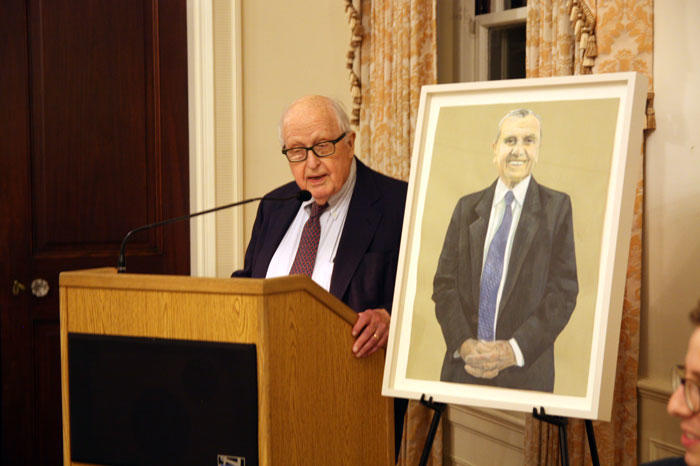Since its founding in 1986, made possible through the generous support of the late Dr. Ira Kukin, founding benefactor of The Harvard Academy, and Albert and Celia Weatherhead and the Weatherhead Foundation, The Harvard Academy has supported over 140 social scientists in area studies—focusing especially on the non-Western areas of the world. The Academy’s premise is that the scholarly world needs individuals who combine thorough disciplinary and area specialization. The Academy Scholars Program was established to facilitate this goal.

Since The Harvard Academy Scholar class of 2000–2001, scholars have published over fifty books with the leading academic presses in the United States and abroad. This staggering amount of publications produced by a relatively small number of scholars speaks to their dedication and mastery of a wide variety of topics. Impressively, almost half of those books were published by Cambridge University Press—the world’s oldest university press and one of the oldest publishers and printers in the world.
In Memoriam: Ira Kukin, 1924–2017

Ira Kukin, the founding benefactor of The Harvard Academy, died in New Jersey at the age of 93 on May 17, 2017. The Jewish saying “may his memory be a blessing” is, in this case, particularly appropriate. A great many scholars have benefitted from Ira Kukin’s generosity and vision. Indeed, it could be argued that his gift was an important factor in sustaining “area studies” at a time of great uncertainty about its future—at Harvard and everywhere else. High theory was in; language and culture was out.
Kukin graduated from City College in 1945 and came to Harvard for graduate studies in chemistry. He was awarded the PhD degree in 1951 and started his career working in a number of industrial research laboratories. In 1963, he went out on his own and created Apollo Technologies, a pioneer company in the field of reducing air pollution resulting from electricity generated through the use of coal and heavy fuel oil. Apollo was very successful and eventually operated all over the world. Kukin remained at the helm until 1983, when Apollo was sold and he was able to turn to full-time philanthropy.
The list of those who benefitted from his donations is long: Yeshiva University, Albert Einstein Medical School, Cardozo Law School, City College, Brandeis, Barnard, etc. And, of course, in a major way: Harvard University.
When one of our own makes a fortune it rarely escapes the notice of those in charge of what we euphemistically call “development.” As dean I had been made aware of Kukin’s resources and of his strong attachment to Harvard and to the Chemistry Department. I was in hot pursuit of a chair in chemistry and in the early 1980s journeyed to New York to close the deal. (In those days, if I remember correctly, a chair cost slightly over one million dollars.) In Manhattan, standing on the street and about to shake hands, Ira Kukin unexpectedly said, “If you inspire me, I would be willing to make a much bigger gift.” Louis Pasteur said, “Luck favors the mind that is prepared,” and I was prepared. For some time Derek Bok and I had wanted to start something resembling the Society of Fellows focusing on international and area studies. (The original Society of Fellows seemed to be increasingly concentrating on the physical and biological sciences.) The idea inspired us and most fortunately, it also inspired Kukin. His founding gift was the equivalent of about three chairs, and the Academy was on its way.
Ira Kukin was not a passive benefactor. He regularly attended dinners and presentations. He asked questions; all the senior and junior scholars knew him. Through his businesses he became quite knowledgeable about different parts of the world. He had strong opinions and was not shy about expressing them. Those of us who were his contemporaries will remember him with gratitude and we will miss him.
—Henry Rosovsky, former chair, The Harvard Academy for International and Area Studies
Captions
1. Graphs of The Harvard Academy scholars by region and discipline. Credit: Kristin Caulfield
2. Henry Rosovsky speaking at the memorial held for Ira Kukin on September 12, 2017. Photo credit: Bruce Jackan; portrait of Ira Kukin by Bettina Burch
